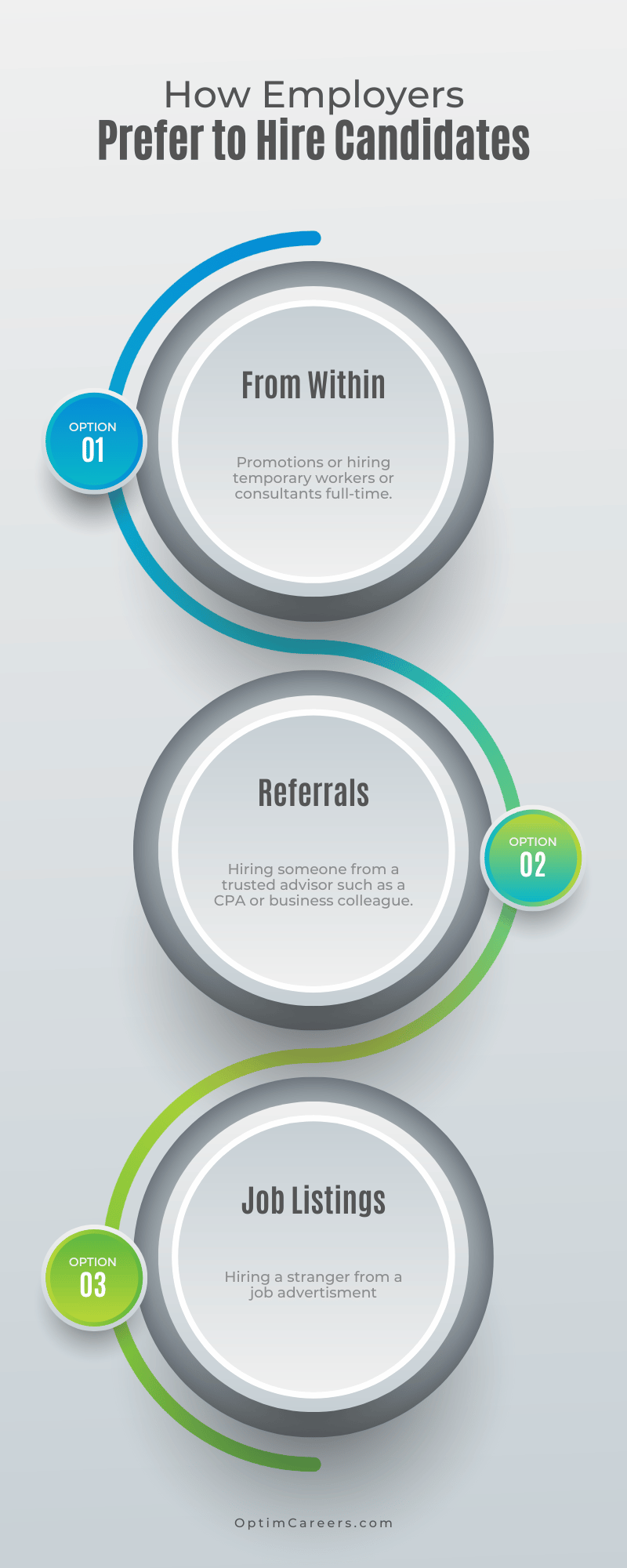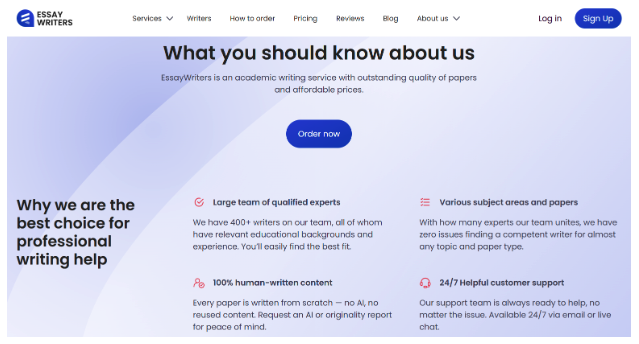There’s a Hidden Job Market for Six Figure Jobs
In today's highly competitive job market, finding high-paying job opportunities can be challenging. While many job seekers rely on public job listings, online job boards, and recruitment agencies, there is a hidden job market that remains largely untapped. There seems to be much debate over what this “hidden job market” really is and how to tap into it amongst recruiters and career coaches.
In this article, we’ll dispel some myths as well as discuss:
What is the hidden job market?
Why someone would not advertise a six-figure job publicly.
The types of companies that commonly use the hidden job market.
How you can access the hidden job market.
How to stand out in the hidden job market.
And, real-life success stories.
Who am I to write this article?
I first learned about the hidden job market when I became a recruiter back in 2015. I saw it play out in numerous ways for many of my clients and candidates which I’ll discuss throughout this article. Since then, I’ve used the hidden job market personally to find and land 2 executive jobs prior to starting Optim. The first time was a Director of Talent Management and the second was a VP of Revenue Operations role.
What is the Hidden Job Market? - Myths and Facts
The hidden job market is a term commonly used to describe job openings that are not publicly advertised. But that’s not always true. Sometimes companies will advertise an opening to comply with regulations even if they’ve already filled or are planning to fill the opening through the hidden job market.
I had this happen to me once. I had an employer ask me if I knew anyone for an Accounting Manager role. I sent them a candidate I knew well and believed in. They interviewed them, but couldn’t hire them for another 20 days because they had to run an advertisement for 30 days to comply with regulations.
Is it right to run ads for compliance? Maybe not, but don’t be naive and think companies won’t do it. Companies will always hire the easiest, best candidate. And many times the best candidate comes from a trusted partner or referral. Many times it’s less risky to hire someone you know versus a stranger.
Perhaps a better way to describe the hidden job market would be jobs that are filled outside of job advertisements, in particular, through referrals and recommendations. This doesn’t mean there isn’t an advertisement necessarily.
These positions are filled through networking, referrals, promotions, and personal connections. Companies often use the hidden job market to fill high-level and executive positions, as well as specialized or niche roles that require specific skills and experience. Often times all of these roles are six-figure jobs.
Many people think of executive roles because the executive search frequency is based on this “hidden” market. But the reality is I’ve seen people get jobs at mid-level and entry-level using the hidden job market. Essentially these are jobs obtained through networking and referrals. They can be accessed at any level.
When I talk to people, they frequently think they can’t access this marketplace of jobs because they don’t have insider connections. While this may have been true back in my parent’s time when the good old boy club ruled supreme, it’s not as true today. Sure those clicks still exist, but anyone can attend industry events and conferences, join associations, and find ways to meet recruiters and other people who could vouch for them.
I’ve also seen many career coaches tell people that they can access the hidden job market as a shortcut to landing a job. I can assure you this is no shortcut. It will take time and effort. Finding jobs in the hidden job markets involves relationships and relationships take time to develop. They have to be nurtured or they will dry up. And you’ll still have to submit a resume and interview most likely.
For job seekers, the hidden job market can offer a wealth of opportunities that may not be available through traditional job search methods. However, accessing the hidden job market requires a different approach to job searching. Instead of relying on job postings and online applications, job seekers must focus on building and leveraging their professional networks to uncover these opportunities. By doing so, job seekers can tap into a wider range of job openings and increase their chances of landing a high-paying job.
Why Six-Figure Jobs are Not Advertised Publicly
First, some jobs in the hidden job market are still advertised publicly. But many are not. Let’s be clear about that.
Before I wrote this article, I made a phone call to a Talent Acquisition Director who I used to work with because he was complaining about some of her staff that she inherited from a previous manager. They weren’t performing well and lacked the drive needed to recruit effectively. So naturally when I stumbled across someone else I knew who was just laid off from a recruiting role, I thought to connect the two of them.
The TA Director I called didn’t have any openings advertised. They didn’t technically have an opening at all. But I knew that my other connection would help them increase their productivity, perform better, and alleviate some of my former colleague’s stress. So I made a call and connected the two of them. There was no job advertisement. There was no job opening. But now my connection who was laid off has an interview for a job that didn’t even exist.
This is how the hidden job market works. Sometimes the six-figure jobs are not advertised because they didn’t exist until an opportunity to upgrade a position came about.
Here are some other reasons why six-figure jobs may not be advertised publicly.
Some companies don’t want to publish their pay ranges publicly for competitors and everyone else to see. In states like California, you have to publish the salary range if you are going to advertise a role. You don’t have to do this if you don’t advertise it. While I find this reason to be the least compelling, it probably happens.
Some companies don’t want competitors or their customers to know when an important role is vacant or about to be vacant. I’ve worked for several companies where discretion was valued. The executives were afraid of what it would do to stocks and that it might spook some customer accounts.
A company could be replacing an employee and they want to conduct a search first before telling the employee that they are fired.
I’ve worked with small businesses that simply don’t want to pay hundreds of dollars to advertise an opening and can find employees easily by asking around and obtaining referrals. If they don’t have to pay to hire a stranger, why would they? Although this is more common with jobs that aren’t six figures.
Many six-figure jobs are filled through executive search firms. Even if the executive search firm puts out an advertisement, oftentimes the company is not advertised, but rather the search firm.
Overall, the hidden job market offers a way for companies to find the best candidates for high-paying positions while maintaining a level of discretion and control over the hiring process. For job seekers, accessing the hidden job market can be a valuable way to uncover job opportunities that may not be available through traditional job search methods.
Types of Industries and Companies that Commonly Use the Hidden Job Market
When I worked in accounting and finance, CPAs were always asked by their clients who they recommended for a CFO or Controller position. The hidden job market is prevalent across a wide range of industries, but some industries and companies are more likely to use it than others. Here are some of the types of industries and companies that commonly use the hidden job market:
Tech startups
Tech startups often rely on their networks to fill key positions, particularly in the early stages of their growth. These companies may not have the resources to advertise job openings publicly and may prefer to focus on finding candidates through referrals and personal connections.
Executive search firms
Executive search firms are companies that specialize in finding and placing candidates in high-level positions. They often have a large network of industry professionals and can tap into the hidden job market to fill executive-level positions.
Finance and investment firms
Finance and investment firms, such as hedge funds and private equity firms, may use the hidden job market to fill specialized or niche roles that require specific skills and experience.
Creative industries
Creative industries, such as advertising and media, may use the hidden job market to find candidates with a unique and specific skill set. These companies may also rely on referrals and personal connections to find talent for freelance or project-based work.
Healthcare
Healthcare organizations, such as hospitals and clinics, may use the hidden job market to fill specialized or hard-to-fill positions, such as physician roles in rural areas.
While these industries and companies are more likely to use the hidden job market, it's important to remember that the hidden job market exists in every industry. By building and leveraging their professional networks, job seekers can uncover hidden job opportunities in any field.
How to Access the Hidden Job Market for Six-Figure Jobs
Accessing the hidden job market requires a different approach to job searching than traditional job search methods. Here are some strategies for accessing the hidden job market for six-figure jobs:
Networking Consistently
Networking is one of the most effective ways to access the hidden job market. Attend industry events, join professional organizations, and connect with industry professionals on LinkedIn. Build genuine relationships with people in your industry and let them know you are open to new opportunities.
The key to making networking work for you is to be consistent. Consistency breeds success. Spend time daily networking. Schedule it on your calendar.
When I was in recruiting, I made my teams do a “reconnect” night once per month. The entire team would meet up and we would call former candidates and contacts to find out about their current job, see how they were doing, and reconnect. We didn’t sell anything. This was purely a networking night to gain insights and nurture our relationships.
If you don’t work at maintaining your relationships, your network will quickly disappear. If you’re currently happily employed, now is the time to start building your network. If you’re unemployed, the best time to start building it is now.
Network with Influencers
Many people network with similar people. There’s nothing wrong with that, but don’t neglect people who may work cross-functionally with you. If you are an accountant in manufacturing, networking with supply chain professionals and human resource professionals would be a good idea as well. By the time your other accounting colleagues know of an opportunity, it may be too late. But the HR person may have advance notice.
Don’t fall into the trap of trying to network exclusively with hiring managers either. Influencers are just as important as decision-makers. In my example earlier with CPAs being asked for referrals, the CPA is not a decision maker. They are an influencer. Think of who the hiring manager would trust. A CFO may trust their CPA. The Director of Supply Chain may trust the APICs consultant or ERP consultant. These are important people to network with.
Get the Word Out
If you are on the market or thinking about being on the market, you need to get the word out. Think of this like a presidential exploratory committee but for your job search. The first step to accessing the hidden job market should be letting all your contacts know that you are thinking about making a change and what that change is specifically. If you want people to think of you for the right jobs, you have to create what is called Mindshare. And to do that, you need to be laser specific about what you are looking for.
Most people fail terribly at this. I get hundreds of messages each week from people looking for a job. I don’t think of most of them because they were unclear about what they were looking for.
It’s not about who you know. It’s about who knows you.
- Cole Sperry
Recruitment agencies
Recruitment agencies can be a valuable resource for accessing the hidden job market. Many companies use recruitment agencies to fill high-level positions, and agencies often have a deep network of industry professionals.
If you’re going to work with recruiters, here are some tips to maximize your efforts:
Connect with recruiters who specialize in your industry and recruit for the jobs you want.
Connect with recruiters who have been in the market for at least three years. This will ensure they have enough relationships and that they will be able to help you access the hidden job market.
LinkedIn is great for recruiters and small companies because these people are active on this platform. Engage with them. Comment on their posts. Many people think they have to become content creators. There is a whole industry of career coaches who do or help executives create content to become “thought leaders.” You don’t need to be a content creator to access the hidden job market.
Also, the LinkedIn strategy doesn’t work well with larger companies. I know of very few large company executives who are active on the platform. You can try messaging Jeff Bezos if you want, but good luck. Even if he did respond, he’s probably not the person who would actually hire you. And most managers at large companies are so busy, they don’t prioritize content creation and responding to comments.
LinkedIn as a strategy will work best connecting with recruiters and small company executives.
Get a Temp Job
Networking isn’t the only way to access the hidden job market. I’ve seen many jobs filled by temporary employees who are hired full-time. I’ve also seen many IT and accounting consultants be hired full-time as well.
Sticking with our definition of the hidden job market, any job that is filled through any other means than advertising qualifies for our description. Many recruiters can help you get a temporary or consulting gig. This gives employers direct access to you where they can witness exactly what it is like to work with you.
After they see your skills in action, there’s a good chance they will hire you. And this strategy requires zero networking. It only requires you to do a great job for the employer and to make sure they know that you are doing a great job.
Submit Proof
I’ve also seen many people land six-figure jobs that were not advertised by emailing executives and submitting proof that they can help them solve a problem. This requires a bit of work, but so does everything else. This can be a shorter way to access the hidden job market than networking if you don’t have a large network to start with.
It involves researching the company to find out their problems and then proactively solving them. For example, if you were a programmer, you could send an employer a program you have done with the code. If you were a counselor, you could send them a case study about your work.
How to Stand Out in the Hidden Job Market for Six-Figure Jobs
Accessing the hidden job market is only the first step. Once you've started networking, you need to differentiate yourself from other candidates and stand out in the eyes of those who could refer you to jobs. Here are some tips for standing out in the hidden job market for six-figure jobs:
Stop Picking People’s Brains
Every time I hear this phrase I think of some surgical doctor prying open my brain for surgery. Yuck! No one wants their brain picked. Instead, be direct and have a purpose for connecting with the other person. Let them know you’re exploring a job change and that you want to speak with them about accounting in aerospace. A statement like that is very straightforward and clear.
Define Your Goal
Having a career goal is important. If you don’t target specific companies or specific jobs within an industry it’s going to be next to impossible to access the hidden job market. Here’s why. You need to hang out where the people in that space hang out. If you don’t know what that is, how will you find them? If you have too many targets, how will you have the time to build deep relationships with enough people? The answer to all of those questions is you won’t and you can’t.
Know Your Value
In order for your networking efforts to be successful, you’ll need to be unique. Having a well-thought-out value proposition can make a huge difference.
Having a resume ready to go that incorporates your unique value proposition will also ensure you are ready when referrals start coming in.
You can create your unique value proposition in three steps:
What problem do you want to be known for solving? It needs to matter to prospective employers.
Who do you do that for? People want to know that you understand their needs.
How do you do that? What are the three ways you solve that problem?
If you need help with your value proposition and resume, it’s all included in Optim’s Resume Revision Service.
Be Cool
So often when we write LinkedIn messages or emails to someone asking them to connect we short-circuit and start writing like we’re back in eighth grade grammar class. Don’t do this. You don’t want to come across the way most people do when they pitch slap you on LinkedIn. Yes, that’s a real term. Google it.
Instead, the best advice I have is to write like you talk. Sure grammar matters, but I’ve found that it doesn’t really matter that much. Spell things correctly, but write like you talk. Use commas and periods to break up the text if you need to.
Real-Life Success Story of Accessing the Hidden Job Market
VP of Marketing - $160,000 Salary
One VP of Marketing I worked with had spent several years as a Marketing Manager and struggled to climb the ladder to a VP role. She ended up taking several fractional roles, consulting with pharmaceutical companies. For one of those companies she helped launch a new product and this led to a substantial growth in business. Because of her work, the company executives approached her about transitioning from consultant to full-time employee in a VP of Marketing capacity.
Since then she’s gone on to other VP-level roles. She didn’t have a big network and didn’t want to build and maintain a large network either. After all, who really has time for all of that, unless you’re in sales and it’s a part of your job? Instead, she leveraged the consultant to full-time strategy. The job was never posted. It was never advertised. She had accessed this six-figure hidden job and had no competition.
Senior Accountant - $92,000 Salary
When we think of the hidden job market, we often think about VP-level roles. But everyone can access these jobs. One Senior Accountant I worked with wanted to make a lateral move to a larger company where she could learn more and feel challenged. At that time I was an executive recruiter in the accounting space with deep relationships. I sat on the board of directors for the Institute of Management Accountants and I knew many CFOs in her local area.
As a recruiter, I had gotten wind of a CFO who was going to be adding staff this quarter to help keep pace with some new projects they had won. I had this Senior Accountant send me her resume and then picked up the phone and called this CFO at a construction company. They were going to open the job up in a few weeks, but it wasn’t open to the public yet. Instead, he ended up meeting with my candidate and no one else.
She had the first pick of this job with no competition. She did have to wait a few weeks because the company had to advertise the job publicly, but the CFO had already made his decision about who he wanted to hire. Even though the job was advertised, she had accessed the job through the “hidden” job market via a recruiter.
Director of Talent Acquisition - $135,000 Salary
My final example is from a recruiter who wanted to find a director-level role. Recruiters are very well networked because it’s key to success in their jobs. Other jobs are like this as well. This recruiter had spent years in a banking and CPA networking group. The group was composed of bankers and public accountants who all sold and interacted with C-Suite executives. They passed leads to one another and made introductions.
One of the other members was with a local accounting firm that was frequently asked to recruit internal candidates for their clients as well. This is pretty common in this arena. This particular recruiter had built a relationship of trust over several years of interactions with the owner of that accounting firm and when it was time to make a change, he simply called him and asked him to lunch.
Because of the trust built up over time, he didn’t even have to give a reason for the lunch. They had partnered together on deals before and catching up with no particular agenda was common practice. At that lunch, the recruiter pitched the owner about hiring him to launch an executive search wing for his accounting firm. He also brought proof and case studies about what that would look like and the estimated profitability.
By the end of the meeting, he walked away with a job offer for $135,000. In this case, he combined the strategies of networking and offering proof to access the hidden job market. This job didn’t exist until he had created it by using these two strategies. He built his resume, found a better work-life balance, and increased his base salary.
In Summary:
The hidden job market is real and can open up new opportunities for you where you don’t have to compete against hundreds of other candidates.
The hidden job market is essentially all the jobs that are filled through means other than job advertisements.
Some of the best ways to access these jobs are through networking, recruiters, and consulting gigs.
Approaching these opportunities the right way will help you stand out.











